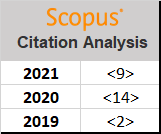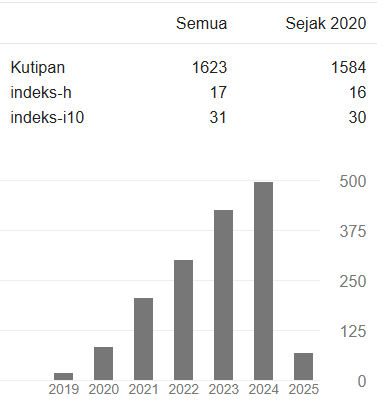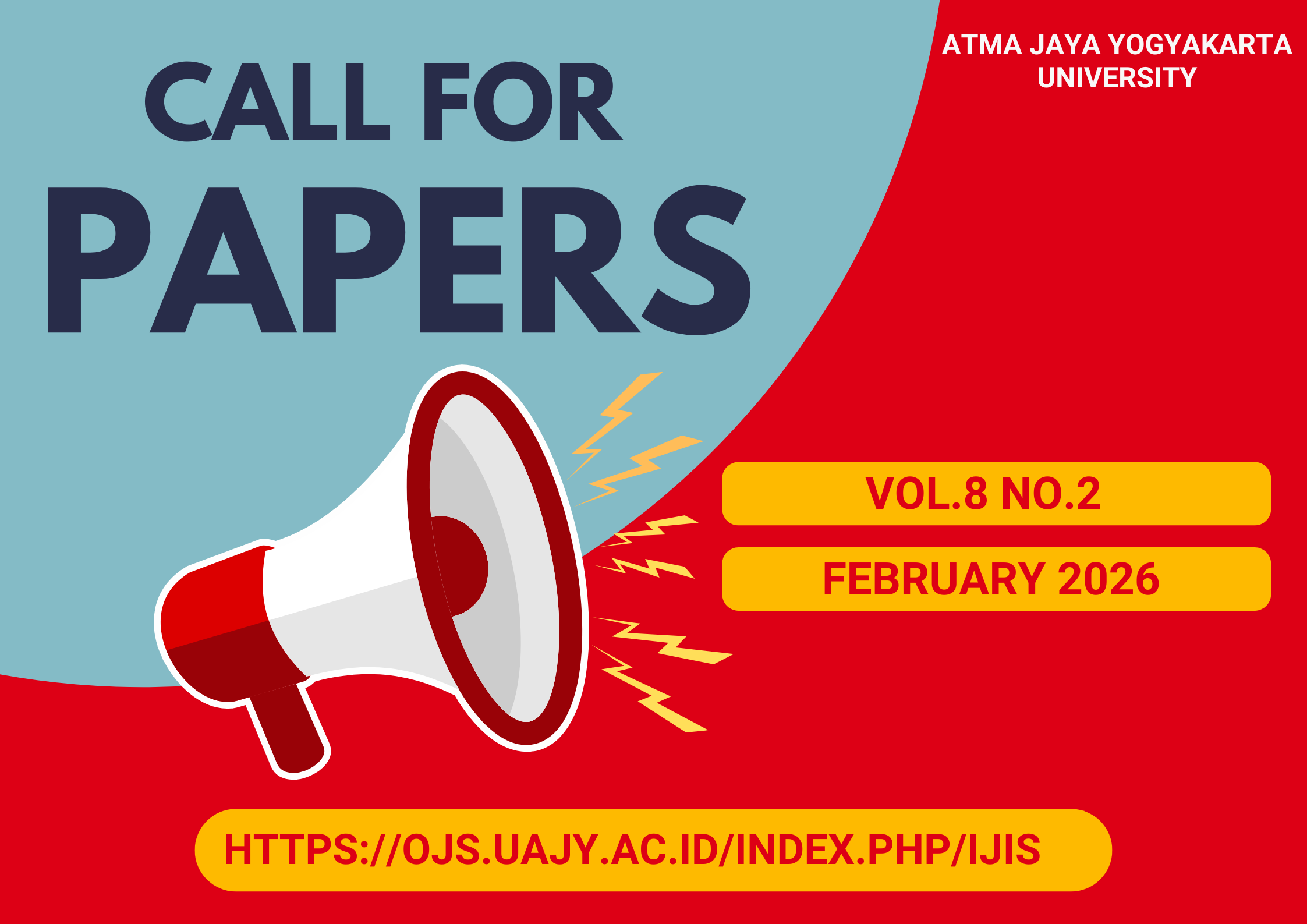Entrepreneurial Modes towards Information Technology Applications in Business during Pandemic Covid-19 Based on Indonesia SMEs’ Stories
DOI:
https://doi.org/10.24002/ijis.v4i2.4840Keywords:
entrepreneurial mode, information technology, SMEs, pandemic Covid-19Abstract
This paper aims to identify entrepreneurial modes towards information technology applications in business during pandemic Covid-19 based on Indonesia SMEs’ stories. This study uses phenomenological approach in discerning 33 Economics students’ reports on SMEs’ ways in relating to social media platforms in the midst of the pandemic as relatively different business instruments driven by information technology along with their encounters to new opportunities within novel landscape of business. The reports indicate a general pattern of three critical stages linked to entrepreneurial challenges namely in the first stage business distortion, in the middle efficiency calculation, and finally available resources allocation. Using two factors i.e. learning capability of the business actors and the sophistication degree of information technology applications, the ways through which entrepreneurs relate to information technology within pandemic context can be identified into four types of mode namely adoption, adaptation, aversion, and abandon. Most of them are in adoption mode, few are in adaptation and abandon modes, and none in aversion mode.References
V. Ratten, Ed., Covid-19 and Entrepreneurship, Oxon and New York: Routledge
B. R. Hernández-Sánchez, G. M. Cardella and J. C. Sánchez-García, “Psychological factors that lessen the impact of COVID-19 on the self-employment intention of business administration and economics’ students from Latin America,” Int. J. Environ. Res. Public Health, vol. 17, no. 5293, 2020, https://doi.org/10.3390/ijerph17155293
N. A. Adam and G. Alarifi, “Innovation practices for survival of small and medium enterprises (SMEs) in the COVID-19 times: the role of external support,” J. Innov. Entrep., vol. 10, no. 15, 2021, https://doi.org/10.1186/s13731-021-00156-6e
T. Sardar, Z. Jianqiu, M. Bilal and N. Syed, “ Information communication technology (ICT), technology acceptance model (TAM), entrepreneurial self-efficacy, ICT facilitation, COVID-19,” Hum. Syst. Manag., vol. 40, no. 2, 2021, pp. 299-314
M. R. H. Polas and V. Raju, “Technology and entrepreneurial marketing decisions during COVID-19,” Glob. J. Flex. Syst. Manag., vol. 22, 2021, pp. 95-112, https://doi.org/10.1007/s40171-021-00262-0
R. Purbasari, Z. Muttaqin and D. S. Sari, “Digital entrepreneurship in pandemic Covid 19 era: the digital entrepreneurial ecosystem framework,” Rev. Integr. Bus. Econ. Res, vol. 10, supplementary issue 1, 2021, pp. 114-135
M. R. Stewart and E. G. Carayannis, “Dystechnia: a model of technology deficiency and implications for entrepreneurial opportunity,” Journal of Innovation and Entrepreneurship, vol. 2, no. 1, 2013, p. 1
A. Abebrese, “Designing a phenomenological research model for entrepreneurship research,” Int. J. Entrepreneurship and Small Business, vol. 22, no. 3, 2014, pp. 286-306
J. C. Chamberlain, “Phenomenological methods and understanding education,” in Existentialism and Phenomenology in Education, D. C. Denton (Ed.), New York: Teachers College Press, 1974, pp.119-138
P. Sanders, “Phenomenology: a new way of viewing organizational research,” The Academy of Management Review, July, vol. 7, no. 3, July 1982, pp. 352-360
H. Berglund, “Researching entrepreneurship as lived experience,” in Handbook of Qualitative Research Methods in Entrepreneurship, H. Neergaard and J. P. Ulhøi (Eds.), Cheltenham and Northampton: Edward Elgar, 2007, pp.75–93
A. Abebrese, “Research practice in entrepreneurship: a phenomenological approach,” Int. J. Business and Globalisation, 2013,
V. M. Bentz and J. J. Shapiro, Mindful Inquiry in Social Research, Sage Publications, 1998
C. Antonelli, The Knowledge Growth Regime: A Schumpeterian Approach, Palgrave Macmillan, 2019
J. Lave and V. Wenger, Situated Learning: Legitimate Peripheral Participation, Cambridge University Press, 1991
D. Moran, “The phenomenological approach,” in The Oxford Handbook of Phenomenological Psychopathology, G. Stanghellini, A. Raballo, M. Broome, A. V. Fernandez, P. Fusar-Poli and R. Rosfort (Eds.), Oxford Handbooks Online, 2018, https://doi.org/10.1093/oxfordhb/9780198803157.013.26
A. Abebrese, “Designing a phenomenological research model for entrepreneurship research,” Int. J. Entrepreneurship and Small Business, vol. 22, no. 3, 2014, pp. 286-306
P. P. Bachtiar, R. A. Diningrat, A. Z. D. Kusuma, R. A. Izzati and A. Diandra, Who Is Digital Economy for? Toward an Inclusive Digital Economy in Indonesia, Jakarta: SMERU Research Institute, 2020, https://smeru.or.id/en/content/who-digital-economy-toward-inclusive-digital-economy-indonesia
M. J. Ibáñez, M. Guerrero, C. Yáñez Valdés and S. Barros Celume, “Digital social entrepreneurship: the N Helix response to stakeholders’ COVID 19 needs,” The Journal of Technology Transfer, https://doi.org/10.1007/s10961-021-09855-4
M. R. Stewart and E. G. Carayannis, “Dystechnia: a model of technology deficiency and implications for entrepreneurial opportunity,” Journal of Innovation and Entrepreneurship, vol. 2, no. 1, 2013
Downloads
Published
How to Cite
Issue
Section
License
Copyright (c) 2022 Indonesian Journal of Information Systems

This work is licensed under a Creative Commons Attribution-ShareAlike 4.0 International License.
Indonesian Journal of Information Systems as journal publisher holds copyright of papers published in this journal. Authors transfer the copyright of their journal by filling Copyright Transfer Form and send it to Indonesian Journal of Information Systems.

Indonesian Journal of Information Systems is licensed under a Creative Commons Attribution-NonCommercial 4.0 International License.

















